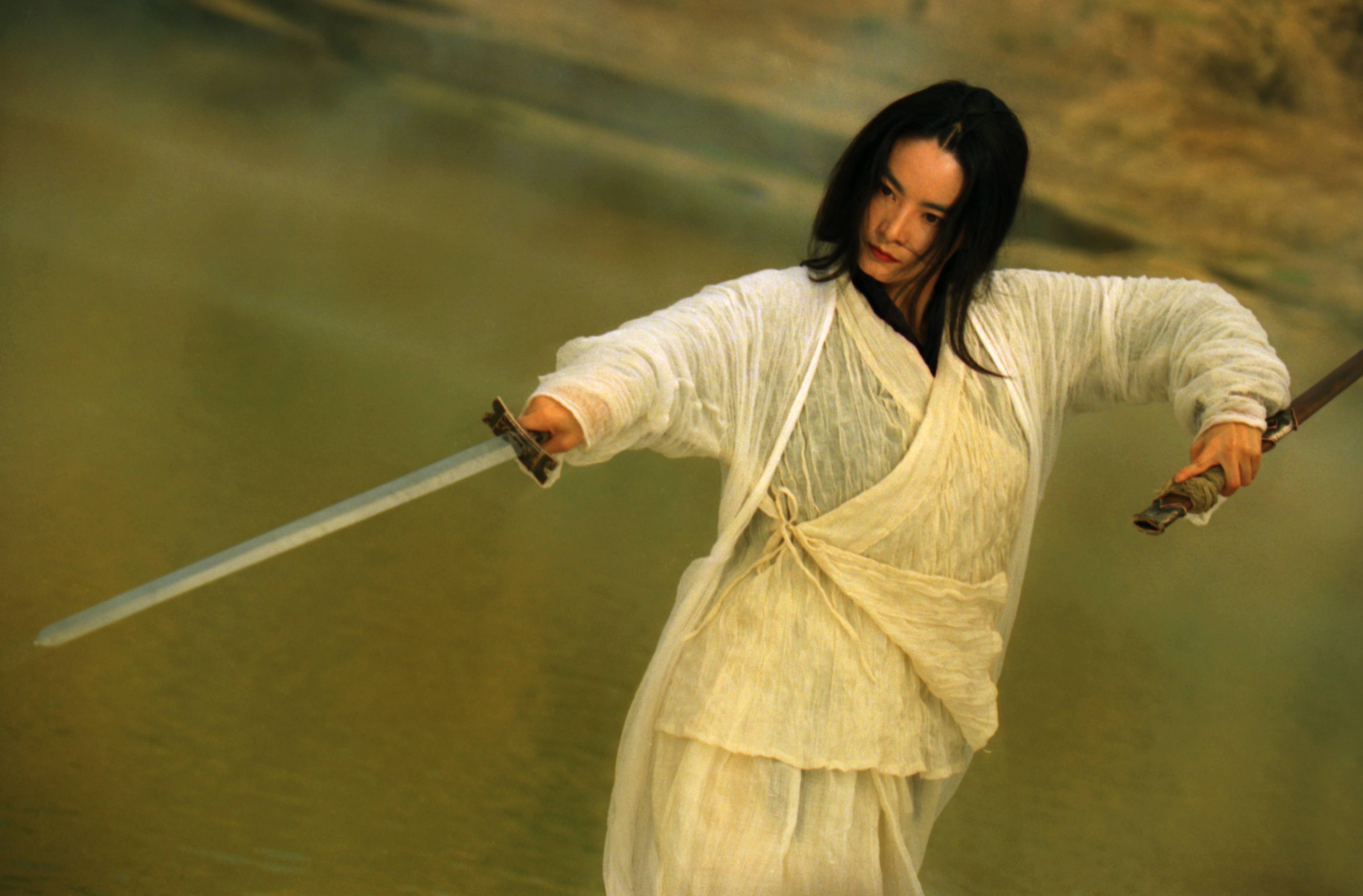Towards the end of 2019, the Chinese television series Joy of Life took audiences by storm. The series’ popularity earned it a green light for a second season, which is still in production.
The TV program was an adaptation of writer Mao Ni’s online novel of the same name, initially serialized on qidian.com, a hub for Chinese web novels, beginning in 2007. The book comprises seven volumes and follows the life of Fan Xian, who travels back in time and finds himself in the body of a newborn.
A fiction genre imported from the West, the concept of time travel has become a wildly popular genre of storytelling in China, especially in recent years.
However, two unique traits distinguish Chinese narratives from their Western counterparts.
This is in stark contrast to classic Western films like Back to the Future (1985) and literature such as H. G. Wells’ The Time Machine, where the protagonists are transported through time in their natural form with the aid of a device.
The first and most crucial difference is that in China, a character’s physical body stays put; only their consciousness moves through space and time.
In Joy of Life, only Fan’s consciousness moves through time, which allows him to live a different life in a different — and younger — body while having the mental maturity of a full-grown adult.
In other Chinese stories, this supplanting of consciousness through time allows for interesting plot twists. For example, a man’s consciousness might end up in the body of a woman, or vice versa.
It is interesting to note that despite switching sexes, the affected character almost always finds him- or herself in an advantageous position, and is blessed with good looks.

The second defining trait of Chinese time travel stories revolves around timescale: characters rarely find themselves in the future. Instead, they only ever travel backward in time, which makes portrayals of Chinese history and cultural identity possible.
That being said, there are exceptions to both trends. Two landmark examples deviating from these molds have made significant contributions to Chinese time travel novels.
The popularity of Chinese time travel stories can be traced back to the late Hong Kong writer Wong Yee or Huang Yi’s novel Xunqin Ji (寻秦记) aka The Search for Qin. The book was published in 1994, followed by a television adaptation released in 2001, which boosted the work’s popularity across the Sinophone world.

Promotional poster for A Step into the Past. Image via IMDb
Produced by Hong Kong broadcasting company TVB, A Step into the Past is a ‘sanitized’ and truncated version of The Search for Qin. The TV series was infused with comedy and action and was one of TVB’s most popular programs in the early 2000s. Actor Louis Koo, the show’s star, even produced a cinematic sequel to the series that has yet to be released.
In the original novel, readers are introduced to Xiang Shaolong, the male protagonist and a member of the military’s special forces. However, his whereabouts are sort of vague.
Xiang is chosen to participate in an experiment that will take him 2,000 years into the past. He is tasked with recording the coronation of the First Emperor on a digital camera, and the plan is for him to send a signal to headquarters upon completing his mission.
After boarding the time machine, however, he finds himself dropped in the wrong place and time.
The novel develops into an adventurous, pseudo-historical tale of survival and intrigue during the closing years of the Warring States period (481-221 BCE), an era of Chinese history characterized by violence and warfare.
Xiang, who understands the importance of not tampering with the chain of historical events, becomes integral in shaping significant moments throughout history. In an unexpected plot twist, he ends up fathering the warlord Xiang Yu, the hegemon of the Western Chu.
Ultimately, Xiang senior does not return home but lives out the rest of his life in ancient times.
Despite the considerable time gap between Xiang’s world and that of the Warring States, never once does he experience any difficulties communicating with the locals in speech or writing. Though convenient, this is inconceivable, seeing as the Chinese script had yet to be standardized by the First Emperor.
While eliminating the element of ‘culture shock’ helps move the story along quicker, it also trivially treats Chinese culture and identity as an uninterrupted continuum that does not undergo significant changes across time and space.
The Search for Qin is one of the few examples of a Chinese time travel story whose lead character keeps their own body. In the novel, the protagonist suspects that time travel has hampered his ability to father any biological children, so he instead adopts a son (the future warlord Xiang Yu).
Seeing as the story isn’t technically a sci-fi novel, the time machine only appears for a brief time; nothing science or technology-related crops up again.
As for characters who time travel only through their consciousness, rarely do their inventors provide a good reason for inexplicable events. A prime example of this: In Joy of Life, the protagonist, Fan, is whisked in an instant from a hospital bed to the body of an infant lying in a reed basket. No explanations are given in the novel — readers must accept the writer’s choice to leave it a mystery.

While Joy of Life is widely marketed as a fictional time travel series, it more closely resembles an isekai, a genre of Japanese fiction that primarily applies to anime.
In most isekai, characters find themselves in another world — from familiar parallel universes to realms dominated by magic or swordsmen with very different mores — after experiencing death, an accident, or some other catastrophe.
Isekai’s popularity has had a spillover effect on other cultures and countries in recent years and has crossed paths with time travel narratives in Chinese media.

Promotional poster for Joy of Life. Image via IMDb
Joy of Life’s diegesis also mirrors Cao Xueqin’s landmark novel The Dream of the Red Chamber. Like Jia Baoyu, Fan grows up (again) in a world where he does not belong and struggles against patriarchal institutions. Even Fan’s wife is a younger cousin whose surname is Lin.
Additionally, the Chinese classic makes a special appearance in Joy of Life; the novel, which is ‘written’ by Fan, takes the capital city by storm.
Joy of Life is filled with wuxia themes, from numerous references to characters created by famed Hong Kong writer Jin Yong to Fan being a skilled martial artist himself.
When addressing the concept of time travel, the protagonist in Joy of Life occasionally pokes fun at the lead character in The Search for Qin.
In this sense, Joy of Life is a work of intertextual madness, a tapestry woven out of numerous classical and contemporary Chinese works, and a cultural quilt catering to a specific generation of Chinese writers and their readers’ interpretation of Chinese cultural identity.
Creativity aside, Chinese time travel stories, which tend to prioritize classical references, have a glaring lack of modern references. Writers responsible for shaping modern Chinese thought and literature, like Lu Xun and Mao Dun, are never mentioned. It is as if Chinese history and culture developed from premodern times and went straight to the contemporary era — the early modern and Mao eras have been completely written out.
While The Search for Qin stands out as one of the first time travel tales written in Chinese, Joy of Life shattered a stereotype in the genre: Readers eventually discover that Fan didn’t travel back in time but into the future.
The world he is ‘born’ into is a post-apocalyptic world that had to rebuild from scratch. After millions of years, civilization has finally reached a level of sophistication comparable to that of medieval China. Any technological advancements in glassmaking, weaponry, and artificial intelligence are the remnants of a bygone civilization.
Even ‘The Temple,’ a mysterious edifice in a remote location in Joy of Life, turns out to be a military museum that has successfully preserved aspects of past technology. Every now and then, the AI-controlled museum dispatches representatives to lend humankind a hand at making technological progress — but at a controlled pace.
In the end, Fan (like Xiang in The Search for Qin) does not return to his own time but lives out the rest of his life in a future that closely resembles the past.
Watch ‘Joy of Life’ with English subtitles here
Cover image designed by Haedi Yue

















